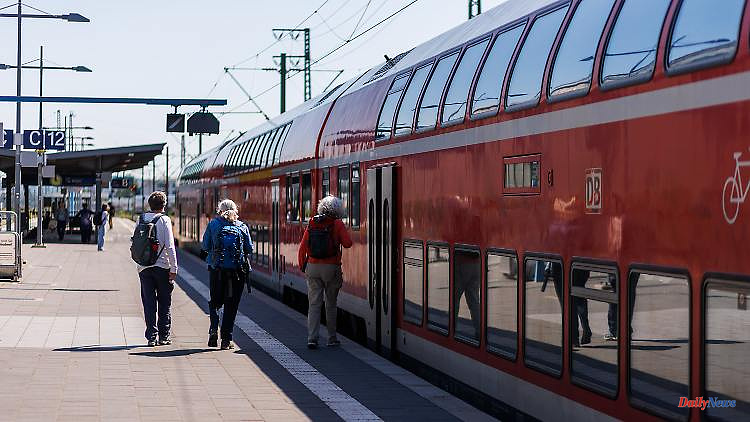Opponents and supporters of a successor solution for the nine-euro ticket have not yet come together. Finance Minister Lindner receives support from the district council. Berlin sees it differently. The central railway station works council calls for an open discussion at the round table.
The Chair of the General Works Council of the DB subsidiary Station
Moll told the newspapers of the editorial network Germany (RND) that she was against a direct continuation of the nine-euro ticket, but was in favor of a cheap offer. "We first need a month or two so that we can sort and evaluate. What went well, where did problems arise?" station
The nine-euro ticket expires at the end of August. A successor plan has been discussed for weeks. The crux of the matter is funding.
The President of the German District Association, Richard Sager (CDU), said he "strongly" supports Finance Minister Christian Lindner's (FDP) statement that no further funds should be spent on the ticket. "In fact, we need every additional euro to expand and improve the offer." Initial studies showed that the nine-euro ticket would primarily benefit people in big cities, Sager said. The ticket therefore hardly contributes to the fact that one's own car is increasingly left at home; it is rather used to a large extent for additional journeys and trips.
Berlin's Governing Mayor Franziska Giffey (SPD) contradicted Federal Finance Minister Lindner and advocated a solution to succeed the nine-euro ticket. It was a great success and relieved many people financially. At the same time, Giffey advocated an excess profits tax to increase household income. "If certain people here simply make excessive profits out of this crisis-ridden situation, then I would perhaps say: Maybe you can't lower a tax, but rather raise a tax?"
Sager warned that nationwide validity of a discussed "climate ticket" would foreseeably result in significant revenue losses and distortions between the individual public transport providers and transport associations. This would jeopardize the financing of the offer. The income from the tickets and subscriptions should go to the municipalities and transport companies responsible for public transport, who organize and provide the offer on site, and not to those who sell a nationwide valid ticket most effectively digitally via a platform, emphasized Sager.












